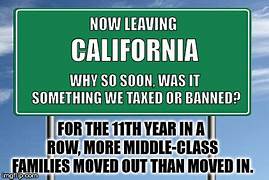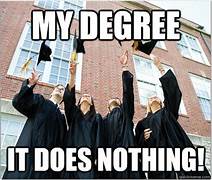Next Christmas you will be considered a racist/bigot if you sing Jingle Bells. Yup, Peter Pan, Dumbo and now Jungle Bells are secret hand shake style racist symbols.
“In 2009 — on the other side of doctoral work — she eyed a “focus on integrating multicultural music into the curriculum.”
“I learned what authenticity and appropriateness meant in the mid-2000s,” she recalls. “I researched and delved into culturally relevant pedagogy.”
She put together a group of “American folks songs, Black American folk songs and songs from other western and non-western culture” for students to memorize.
But last March — “the same week,” Kate points out, “that eight people (most of them Asian women) were murdered near Atlanta by a white gunman” — she “made the difficult decision to acknowledge [her] ignorance.”
As it turns out, many of the songs she taught — not only in middle school, but college — were “not appropriate.”
Get your pen, and prepare to take note.
Mainstays such as “Polly Wolly Doodle” and “Shortnin’ Bread,” her research revealed, are “tied…to blackface minstrelsy…”
She has declared Stephen Foster an enemy of the State. Poor lady has either fried her brain with drugs or has a severe mental condition. Wonder when she will decide that the Beatles early love songs were actually misogynist and have to be CANCELLED?
University Lecturer Cancels Racist Children’s Songs, Including ‘Jingle Bells’

By Alex Parker, RedState, 4/18/21
Get ready for more cancellation.
A University of Nevada-Reno lecturer’s had a change of heart.
Or, at least, mind.
For Nevada Today, university senior music lecturer Kate Pollard’s written of her “own anti-racist journey.”
The result of her travels: She’s nixing songs she used to salute but now perceives as problematic.
As it turns out, most all of you have dabbled in the depths of sinister songs while never knowing.
But today’s a time for teaching.
Per her piece, Pollard was once like you.
When she began as a middle school teacher, Kate held to the songs upon which she’d grown up.
In fact, she corralled her choir to sing a medley called “An American Trilogy.”
Included: “Battle Hymn of the Republic” and the tune “All my Trials.”
The collection began thusly: “Oh, I wish I was in Dixie, away, away…”
Call it a lack of awareness:
I don’t think I even knew what these songs were about, and I am fairly certain that none of my middle school students asked about their historical context.
In 2009 — on the other side of doctoral work — she eyed a “focus on integrating multicultural music into the curriculum.”
“I learned what authenticity and appropriateness meant in the mid-2000s,” she recalls. “I researched and delved into culturally relevant pedagogy.”
She put together a group of “American folks songs, Black American folk songs and songs from other western and non-western culture” for students to memorize.
But last March — “the same week,” Kate points out, “that eight people (most of them Asian women) were murdered near Atlanta by a white gunman” — she “made the difficult decision to acknowledge [her] ignorance.”
As it turns out, many of the songs she taught — not only in middle school, but college — were “not appropriate.”
Get your pen, and prepare to take note.
Mainstays such as “Polly Wolly Doodle” and “Shortnin’ Bread,” her research revealed, are “tied…to blackface minstrelsy…”
“Land of the Silver Birch” and “Canoe Song” suffer from “misrepresentation of Indigenous Native American and Canadian cultures.”
And have you ever heard “John Kanaka”? That little ditty hosts “derogatory terms for a Hawaiian man.”
Furthermore, if you’re ever indulged in “5 Little Monkeys” or “Baa Baa Black Sheep,” you were belting out bigotry, entertaining “terms used by white Americans to stereotype and degrade Black Americans.”
Kate’s righted her wrongs; she’s acknowledged her illiteracy.
Can you cut out America’s cancerous carols?
There are lots.
Nonetheless:
“Now that I know better and am moving forward, I will leave them behind.”
She’s referring, to be clear, to Stephen Foster’s foistings — among them “Oh, Susanna” and “Camptown Races.”
Also on the outs: a song called “America.”
“Some educators defend using these songs,” she notes, “stating they have historical value.”
But:
“I don’t feel the need to preserve the music. I would rather promote songs that are inclusive than promote songs that although may have been popular also marginalize and degrade a population.”
The instructor’s set a high bar.
And to be clear, as for the full, original lyrics of “Oh, Susanna,” she’s not wrong.
It seems the nation needs a new start. The kind that can only come courtesy of a time machine.
‘Til then, the professor will be 86’ing the evils of melodious, problematic poems — including a “minstrelsy” work previously positioned as an innocent celebration of the Most Wonderful Time of the Year:
I didn’t know that many American folk song traditions are tied, for instance, to blackface minstrelsy, e.g. “Shortnin’ Bread,” “Polly Wolly Doodle” and even “Jingle Bells.”
About that last iconic anthem, Campus Reform reached out to the author
Pollard told Campus Reform that “Jingle Bells” is problematic because she read that “slave owners used to put bells on slaves to keep track of them, which the jingle bells are referencing.”
The bells of change are upon us.
Our culture’s headed for the unknown.
And America’s jingling all the way.



